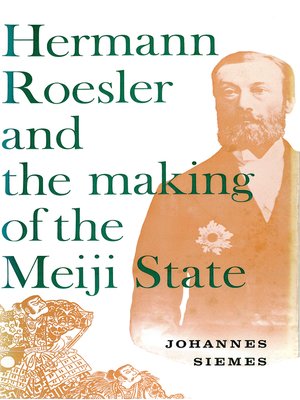
Sign up to save your library
With an OverDrive account, you can save your favorite libraries for at-a-glance information about availability. Find out more about OverDrive accounts.
Find this title in Libby, the library reading app by OverDrive.



Search for a digital library with this title
Title found at these libraries:
| Library Name | Distance |
|---|---|
| Loading... |
That Imperial Japan closely resembled authoritarian Germany was no simple coincidence. This book explores the effect of German thought on nineteenth century Japan, focusing on Hermann Roesler—the most influential collaborator.
The Meiji leadership was committed to an authoritarian form of government. At the same time it was also clearly committed to a constitutional system. The mid and late 1880's saw the efforts of Japan's most capable leaders directed to the formation and rationalization of this ambivalent system. Because German socio–political ideas played an important role in this process, it is necessary to examine closely the extent of German influences on the Japanese leaders.
All the standard Western works on Meiji Japan refer in passing to the influence of German, and in particular of Prussian, political and legal theories. Of the many German scholars who worked in Japan during the mid–Meiji period who were responsible for weighty changes, Hermann Roesler is considered one of the most influential in regard to political thought. Employed by the Japanese government as adviser on legal affairs from 0878, he was until 1893 one of the most trusted and esteemed collaborators of Ito Hirobumi.
The Meiji leadership was committed to an authoritarian form of government. At the same time it was also clearly committed to a constitutional system. The mid and late 1880's saw the efforts of Japan's most capable leaders directed to the formation and rationalization of this ambivalent system. Because German socio–political ideas played an important role in this process, it is necessary to examine closely the extent of German influences on the Japanese leaders.
All the standard Western works on Meiji Japan refer in passing to the influence of German, and in particular of Prussian, political and legal theories. Of the many German scholars who worked in Japan during the mid–Meiji period who were responsible for weighty changes, Hermann Roesler is considered one of the most influential in regard to political thought. Employed by the Japanese government as adviser on legal affairs from 0878, he was until 1893 one of the most trusted and esteemed collaborators of Ito Hirobumi.







